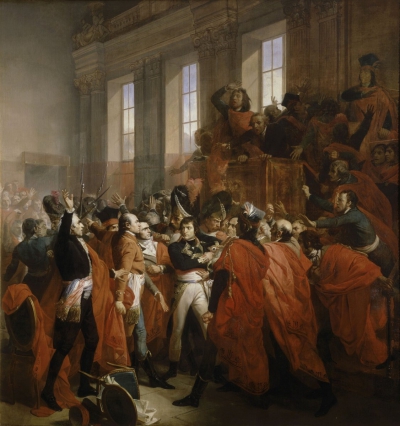Alhaji Ahmad Tejan Kabbah (February 16, 1932 March 13, 2014) was a Sierra Leonean politician who served twice as the 3rd President of Sierra Leone, from 1996 to 1997 and again from 1998 to 2007. An economist and attorney by profession, Kabbah spent many years working for the United Nations Development Programme. He retired from the United Nations and returned to Sierra Leone in 1992.In early 1996, Kabbah was elected leader of the Sierra Leone People's Party (SLPP) and was the party's presidential candidate in the country's first free presidential election later that year. He was elected with 59% of the vote, defeating his closest rival, John Karefa-Smart of the United National People's Party (UNPP), who had 40% in the runoff vote and conceded defeat. International observers declared the election free and fair. Kabbah campaigned on a promise to end the civil war if elected president. During his inauguration speech as president, Kabbah repeated he promised to end the civil war, which he indeed achieved later in his presidency.
A deeply devoted Muslim, Kabbah was born in Pendembu, Kailahun District in Eastern Sierra Leone, though he was raised in the capital Freetown. Kabbah was an ethnic Mandingo. Kabbah was Sierra Leone's first and currently the only Muslim head of state of the country.Kabbah's first marriage, in 1965, was to Patricia Tucker, a devout Christian from the Sherbro ethnic group and a native of Bonthe District in Southern Sierra Leone. He and Patricia Kabbah had five children. The two were often seen together in public before his presidency. She was very influential during his presidency, focusing mainly on humanitarian issues, and was outspoken on the need to end the civil war. She died from an illness in 1998 and thus did not live to see the war's end in 2002.
A year after he left office as president, and ten years after the death of his wife Patricia, Kabbah married Isata Jabbie Kabbah, an ethnic Mandingo and a Muslim in an Islamic wedding ceremony in Freetown. They remained married until he died in 2014.
Most of Kabbah's time in office was influenced by the civil war with the Revolutionary United Front, led by Foday Sankoh, which led to him being temporarily ousted by the military Armed Forces Revolutionary Council from May 1997 to March 1998. He was soon returned to power after military intervention by the Economic Community of West African States (ECOWAS), led by Nigeria. Another phase of the civil war led to the United Nations and British involvement in the country in 2000.
As President, Kabbah opened direct negotiations with the RUF rebels to end the civil war. He signed several peace accords with the rebel leader Foday Sankoh, including the 1999 Lom Peace Accord, in which the rebels, for the first time, agreed to a temporary ceasefire with the Sierra Leone government. When the cease-fire agreement with the rebels collapsed, Kabbah campaigned for international assistance from the British, the United Nations Security Council, the African Union and the Economic Community of West African States to help defeat the rebels and restore peace and order in Sierra Leone.
Kabbah declared the civil war officially over in early 2002. Tens of thousands of Sierra Leoneans across the country took to the streets to celebrate the end of the war. Kabbah went on to easily win his final five-year term in office in the presidential election later that year, defeating his main opponent Ernest Bai Koroma of the main opposition All People's Congress (APC) with 70.1% of the votethe largest margin of victory for a free election in the country's history. International observers declared the election free and fair.
A coup d'état ( (listen); French for "blow of state"), often shortened to coup in English (also known as an overthrow), is a seizure and removal of a government and its powers. Typically, it is an illegal seizure of power by a political faction, rebel group, military, or a dictator. Many scholars consider a coup successful when the usurpers seize and hold power for at least seven days.

1997May, 25
A military coup in Sierra Leone replaces President Ahmad Tejan Kabbah with Major Johnny Paul Koromah.
Choose Another Date
Events on 1997
- 19Jan
Hebron
Yasser Arafat returns to Hebron after more than 30 years and joins celebrations over the handover of the last Israeli-controlled West Bank city. - 21Jan
Newt Gingrich
The U.S. House of Representatives votes 395-28 to reprimand Newt Gingrich for ethics violations, making him the first Speaker of the House to be so disciplined. - 5Feb
The Holocaust
The so-called Big Three banks in Switzerland announce the creation of a $71 million fund to aid Holocaust survivors and their families. - 2Jun
Oklahoma City bombing
In Denver, Timothy McVeigh is convicted on 15 counts of murder and conspiracy for his role in the 1995 bombing of the Alfred P. Murrah Federal Building in Oklahoma City, in which 168 people died. He was executed four years later. - 1Jul
Tony Blair
China resumes sovereignty over the city-state of Hong Kong, ending 156 years of British colonial rule. The handover ceremony is attended by British Prime Minister Tony Blair, Prince Charles of Wales, Chinese President Jiang Zemin, and U.S. Secretary of State Madeleine Albright.

 English
English  español
español  français
français  português
português  русский
русский  العربية
العربية  简体中文
简体中文 